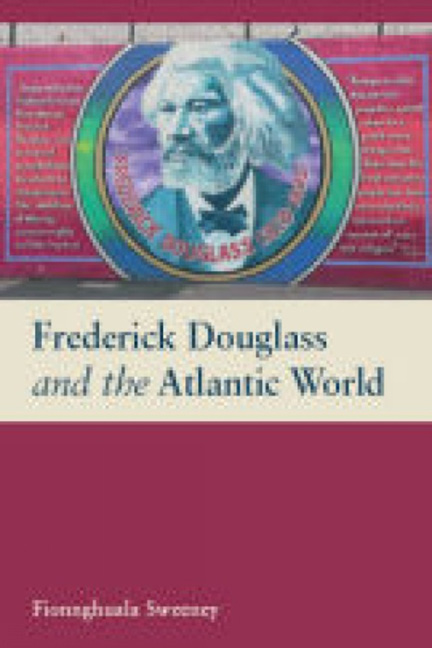Book contents
- Frontmatter
- Contents
- Introduction: Frederick Douglass and the Atlantic World
- 1 ‘The Republic of Letters’: Frederick Douglass, Ireland and the Irish Narratives
- 2 Friends and Allies: The Economics of the Text
- 3 An American Slave: Representing the Creole Self
- 4 The Hidden Ireland: Social Commentary and Public Witness
- 5 ‘Mask in Motion’: Dialect Spaces and Class Representation
- 6 Race, Civilization, Empire
- 7 Models of Progress: Ireland, Haiti and the Atlantic
- Conclusion
- Bibliography
- Index
6 - Race, Civilization, Empire
- Frontmatter
- Contents
- Introduction: Frederick Douglass and the Atlantic World
- 1 ‘The Republic of Letters’: Frederick Douglass, Ireland and the Irish Narratives
- 2 Friends and Allies: The Economics of the Text
- 3 An American Slave: Representing the Creole Self
- 4 The Hidden Ireland: Social Commentary and Public Witness
- 5 ‘Mask in Motion’: Dialect Spaces and Class Representation
- 6 Race, Civilization, Empire
- 7 Models of Progress: Ireland, Haiti and the Atlantic
- Conclusion
- Bibliography
- Index
Summary
Douglass's early overseas experience indicates the importance of transnational encounters to the formation of black American subjectivity, complicating claims to either US or African American exceptionalism in the mid-nineteenth century. The writing and rhetoric of the British–Irish tour exemplifies the potential for the creation of an enabling myth for the African American subject in spaces where the racial hegemony of the United States could safely be contested.
Equally revealing are the international experiences at the latter part of Douglass's career. In 1886, Douglass toured Europe and North Africa with his second wife, Helen Pitts. He was later appointed as US minister to Haiti from 1889 to 1891, and subsequently engaged as organizer of the Haitian pavilion at the 1893 Columbian World's Fair in Chicago.
The circumstances of these overseas experiences could not be more different from those of the early sojourn. Rather than seeking asylum or advocating resistance, Douglass travelled as a tourist or a representative of state. Additionally, by the end of the nineteenth century, Egypt and Haiti were important spaces in the political and cultural imaginary of western empire and black nationalism. Douglass's views on each country afford a glimpse of his attitudes to important elements in the American and African American cultural imaginary of the period. His writings reveal some of the complexity of the African American relationship with Africa and modernity, particularly as that relationship reflected the rise of the United States as an imperial power. It also provides an example of an often unacknowledged dimension of that relationship: the degree to which African American discourse, in its attempt to inscribe Africa and Africans into the logic of western historicism, became complicit in contemporary discursive practices of colonialism and imperialism.
The Egyptian Tour
The tour undertaken by the Douglasses in Europe and North Africa in 1886 was in many ways, as one of Douglass's biographers notes, ‘the most conventional of upper-class trips abroad’. Indeed the circumstances of the trip could not have been further from those that obtained on his previous two trips, when he left the United States a fugitive and was severely restricted as to the countries he was allowed to visit.
- Type
- Chapter
- Information
- Frederick Douglass and the Atlantic World , pp. 138 - 162Publisher: Liverpool University PressPrint publication year: 2007

